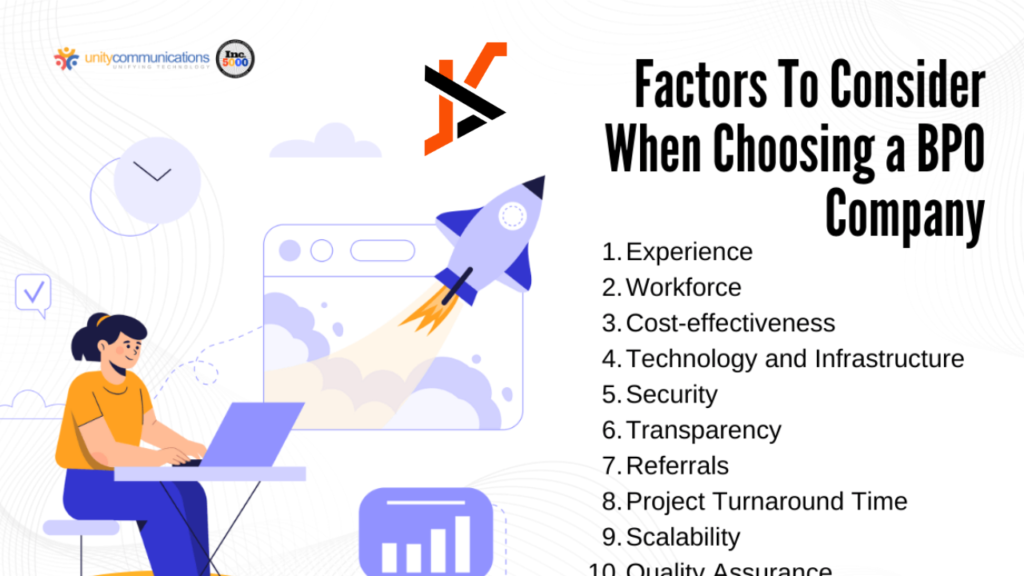Why Selecting the Right BPO Provider is Crucial for Business Success
Outsourcing business processes to a BPO provider can significantly enhance efficiency, reduce costs, and improve customer experience. However, choosing the best BPO provider is a strategic decision that impacts long-term business performance.
With the BPO industry expanding globally, businesses need a structured approach to select the ideal outsourcing partner. This article provides a step-by-step guide on how to choose the best BPO provider, ensuring alignment with business needs, operational goals, and industry-specific requirements.
1. Identify Your Business Needs & Goals
Before selecting a BPO partner, businesses must clearly define their outsourcing objectives. Consider the following:
✅ Which business functions require outsourcing? (e.g., customer support, finance, IT services)
✅ What level of expertise is required? (e.g., industry-specific knowledge, multilingual support)
✅ What are the key performance expectations? (e.g., faster response times, cost savings, CX improvement)
Example:
An e-commerce company may require 24/7 customer service with support for multiple languages, while a fintech company may need a BPO provider with compliance expertise in financial regulations.
2. Look for Industry Experience & Domain Expertise
Not all BPO providers are equal—some specialize in certain industries while others offer generalized services.
📌 Key Considerations:
- Does the BPO provider have experience in your industry niche?
- Can they handle industry-specific regulations (e.g., HIPAA for healthcare, PCI-DSS for fintech)?
- Have they worked with businesses similar to yours?
Example:
A healthcare provider outsourcing medical billing services should choose a BPO firm certified in HIPAA compliance to avoid regulatory risks.
3. Evaluate Scalability & Workforce Flexibility
A scalable BPO provider can adapt to business growth, seasonal demand fluctuations, and unexpected surges in service requests.
🔹 Why Scalability Matters:
✔ Ability to increase or decrease workforce based on business needs
✔ On-demand staffing solutions for peak seasons or product launches
✔ Capacity to expand operations without major capital investment
Example:
A retail company experiencing high customer inquiries during Black Friday sales should choose a BPO provider that can ramp up support agents instantly.
4. Assess Technology & Infrastructure Capabilities
The best BPO providers leverage cutting-edge technology to enhance efficiency, security, and customer experience.
📌 Essential Technologies to Look For:
✅ AI-driven chatbots for automated customer interactions
✅ Omnichannel support (voice, chat, email, social media)
✅ Cloud-based solutions for remote operations
✅ CRM and data analytics for real-time monitoring
Example:
A BPO provider using AI-powered customer support systems can reduce wait times, improve first-call resolution, and personalize customer interactions.
5. Prioritize Compliance, Security & Data Protection
When outsourcing business functions, data security and compliance should be a top priority.
📌 Security Standards to Look For:
✔ ISO 27001: Information security management
✔ PCI-DSS: Payment card data security compliance
✔ GDPR & CCPA Compliance: Data privacy regulations
✔ HIPAA Compliance: For healthcare-related outsourcing
Example:
A financial institution outsourcing customer support must ensure PCI-DSS compliance to protect sensitive financial transactions.
6. Evaluate Workforce Quality & Training Programs
The quality of BPO services is directly linked to the skills and training of its workforce. A high-performing team ensures customer satisfaction and service efficiency.
📌 What to Check:
✅ Recruitment Process: How are agents selected?
✅ Training Programs: Do they provide industry-specific training?
✅ Soft Skills Development: Communication, problem-solving, empathy training.
Example:
A SaaS company requiring technical support outsourcing should choose a BPO provider that offers in-depth software training for support agents.
7. Understand Pricing & Cost Models
BPO pricing models vary depending on business needs and service complexity.
📌 Common BPO Pricing Structures:
✅ Fixed pricing: Monthly/annual contracts with a set fee
✅ Pay-per-performance: Fees based on service level achievement
✅ Hourly rate model: Pay for agent work hours
Pro Tip: Avoid choosing the cheapest BPO provider—focus on cost-effectiveness and value-driven service delivery.
Example:
A startup may opt for a flexible pay-per-use model, while an enterprise business may benefit from a fixed-rate contract for dedicated teams.
8. Review SLAs, Performance Metrics & Reporting
A well-defined Service Level Agreement (SLA) ensures clarity in performance expectations and service commitments.
📌 Key Performance Indicators (KPIs) to Consider:
✔ Customer Satisfaction (CSAT) – Measures customer happiness
✔ First Call Resolution (FCR) – Tracks the percentage of issues resolved on first contact
✔ Average Handling Time (AHT) – Evaluates the efficiency of service interactions
Example:
A BPO partner offering transparent SLA agreements should provide monthly reports, real-time analytics, and continuous performance reviews.
9. Check Client Testimonials, Case Studies & Market Reputation
Before finalizing a BPO provider, verify their reputation through client reviews and success stories.
📌 How to Validate a BPO Provider’s Credibility:
✅ Read case studies on past outsourcing success stories
✅ Check third-party review platforms (Clutch, G2, Trustpilot)
✅ Ask for client references to verify real-world performance
Example:
A tech company seeking an outsourced helpdesk solution should choose a BPO provider with proven success stories in IT support.
10. Make the Final Decision & Compare Your Options
Now that you’ve analyzed the key selection criteria, it’s time to compare BPO providers and make an informed decision.
📌 Checklist Before Signing a BPO Contract:
✔ Does the provider align with your business goals and values?
✔ Do they offer scalability and workforce flexibility?
✔ Are they certified in security and compliance standards?
✔ Do they provide transparent pricing and performance tracking?
🔹 Final Step: Shortlist the top 3 providers, schedule consultations, and conduct a final evaluation before making your decision.
Final Thoughts: Why Choosing the Best BPO Provider is a Competitive Advantage
Partnering with the right BPO provider ensures:
✔ Cost-efficient operations with high-quality service
✔ Scalable business growth with workforce flexibility
✔ Enhanced customer experience powered by AI-driven solutions
Looking for a trusted BPO partner? Use this guide to evaluate, compare, and select the best BPO provider tailored to your business needs.
🔹 Need help choosing the right outsourcing solution? Connect with industry experts today!

